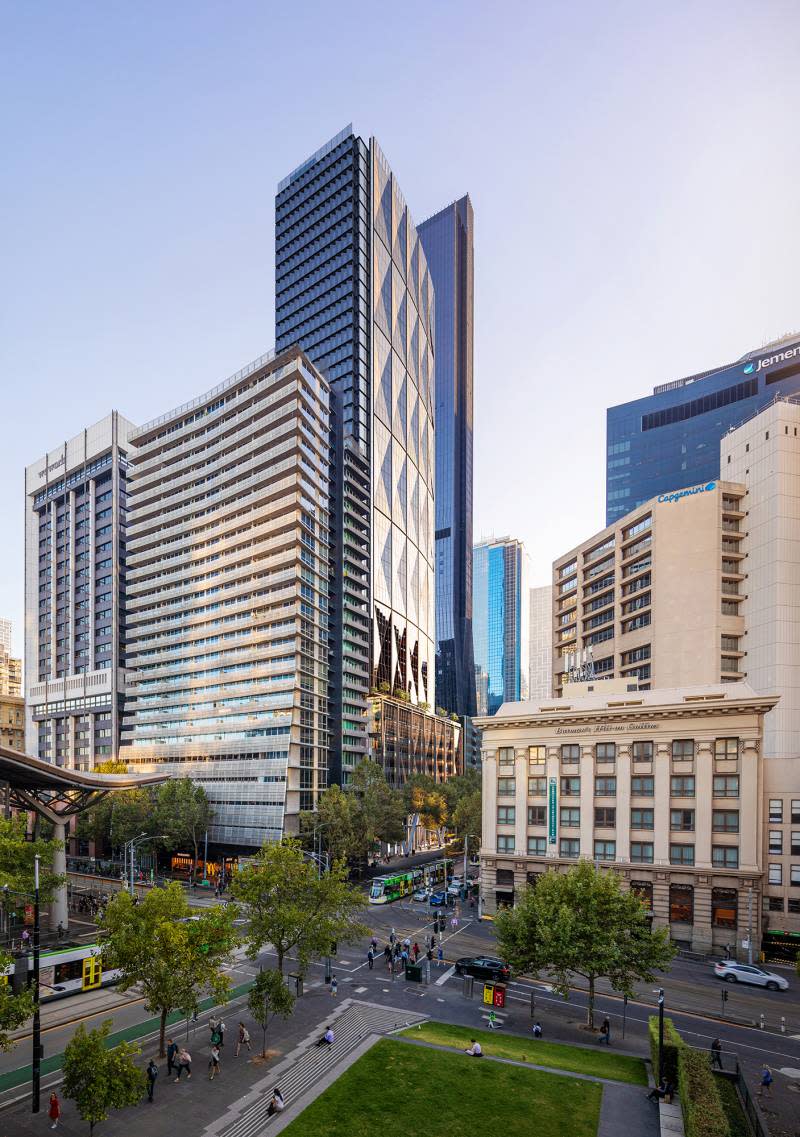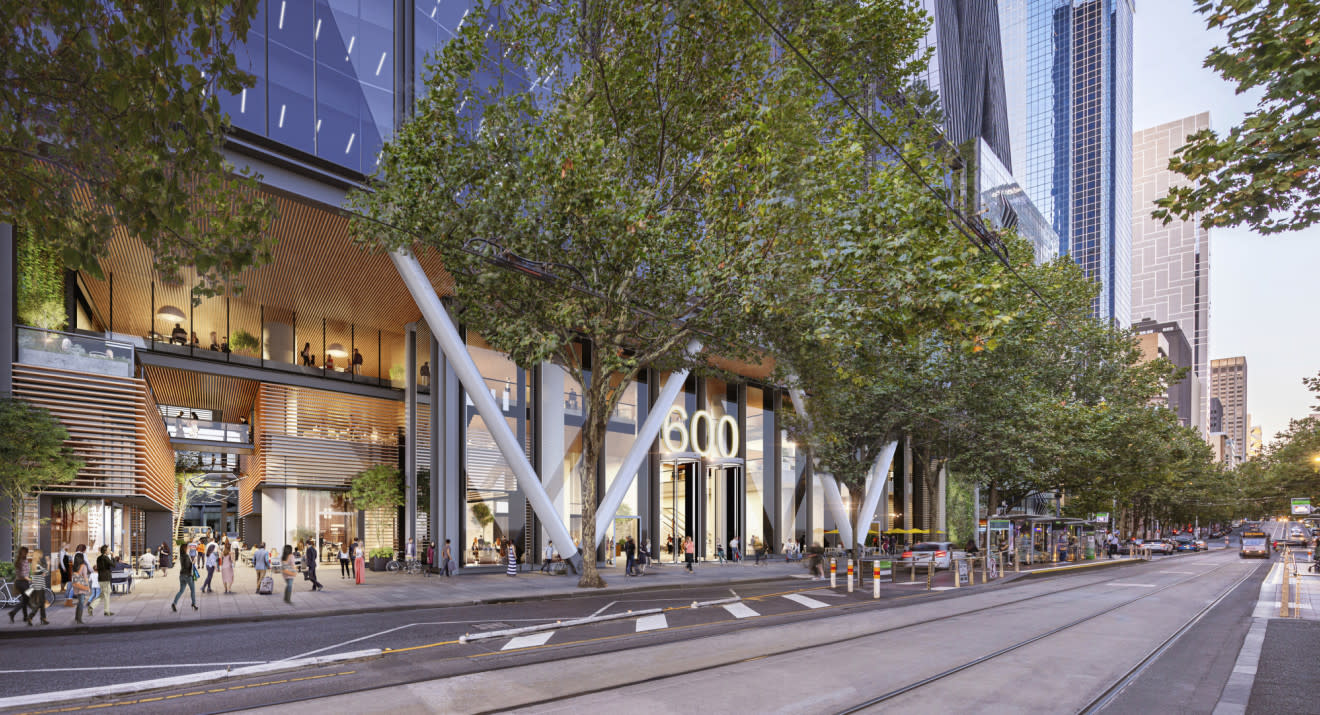Resources
Newsletter
Stay up to date and with the latest news, projects, deals and features.
Subscribe
Global investment firm Hines has been granted Victorian government approval to build its $1-billion office tower in central Melbourne.
In a major vote of confidence for the sector’s post-pandemic prospects, Hines will deliver a 180m premium-grade office tower spanning 60,000sq m, to be known as 600 Collins.
It marks a quick turnaround time for a significant project. Hines lodged plans for the tower in early August. Work is expected to commence on site in December with completion earmarked for the first half of 2026.
The all-electric tower is targeting a minimum 6-star Green Star Green Building Council rating and a Platinum WELL Certification for shell and core.
Hines managing director Simon Nasa said that the tower would be one of the most energy efficient and sustainable buildings in Australia.
“This approval from DELWP in collaboration with the City of Melbourne validates our shared confidence in the continued strength of Melbourne CBD as a global city and home to Australia’s best businesses,” Nasa said.
Hines acquired the 2400sq m site, once slated to become the Zaha Hadid-designed home for the country’s first Mandarin Oriental hotel, from developer Landream at the height of the pandemic in late 2020. It is currently occupied by a four-storey retail and office building.
The deep-pocketed US investment house outlaid $200 million for the rectangular site in the heart of Melbourne’s commercial core that boasts more than 70m of frontage on Collins Street along with approval for an existing residential and hotel scheme.

“When we acquired the site in the height of Covid, we had the opportunity to define how the office could bring together the best elements of how people live, work, and play while outperforming the market in sustainability,” Nasa said.
“The building will be a destination shaped by experience, amenities, and our tenants partnering with us to create spaces that attract and retain the best talent.
“600 Collins is setting the standard for how developments in Australia can be both environmentally responsible and cutting edge.”
The midtown section of Collins Street already includes a slate of landmark towers developed by Investa, Mirvac and Cbus Property.
In the same block, on the opposite side of the street, local fund manager Charter Hall is advanced on 555 Collins Street—a $1.5-billion office development already pre-leased to blue-chip tenants Amazon and Aware Super. Singapore’s sovereign wealth fund GIC earlier this year secured a half stake in the project.
Hines’ approved biophilic office building, designed by architects WilkinsonEyre and Architectus, is Collins Street’s first new commercial tower to be designed since the pandemic and will be adaptable to the changing needs of a digitally enabled workforce.
It will include curated casual and formal food and beverage offerings, podium terraces, experiential end-of-trip facilities including a hotel-style reception lounge, showers, lockers, and bike parking, wellness centres, collaborative work zones, and dedicated green spaces.
It will also feature rooftop terraces and outdoor spaces, conferencing and collaboration zones.

A new laneway will create a public thoroughfare through to Francis Street, the small road running parallel to Collins Street to the north.
Hines’ plans for Collins Street is the result of a game plan set in motion more than five years ago as it divested a $650 million portfolio of four office towers in Sydney, Melbourne and Brisbane and swung its focus towards development.
The privately owned group, which manages $122 billion of assets globally, and currently has more than 198 developments underway around the world.
Its Collins Street development will be one of five projects it has currently in development across the Asia Pacific region.
Its activities in Australia include building a $200 million timber office tower at 36-52 Wellington Street in Collingwood and a 10-storey, 5000sq m boutique office building in Richmond.
The sustainably-focused developer plans to be carbon neutral across its global portfolio by 2040 without buying offsets.
In June, Hines announced plans to work to reduce carbon throughout its portfolio by electrifying fossil fuel-based systems within its buildings, utilising circular systems principles to reduce energy waste and increase system efficiency, and pursuing onsite and off-site renewables that promote renewable energy development.
The group is currently establishing agreements with third-party partners to provide data to track progress on energy consumption and ongoing emissions reductions.